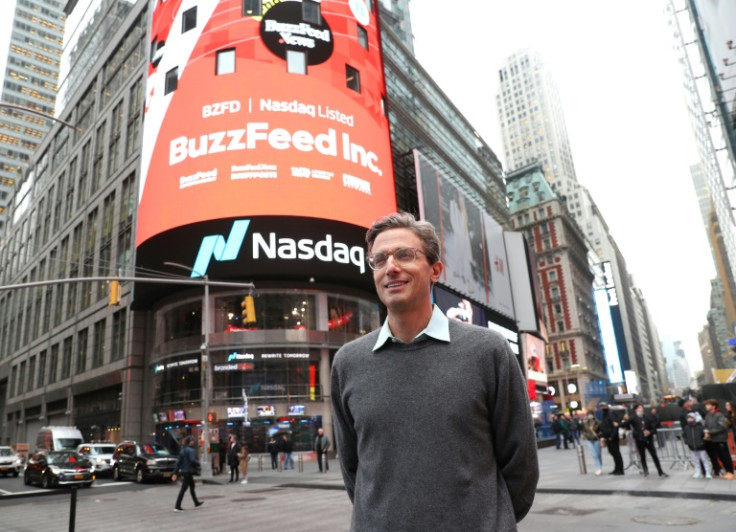BuzzFeed to close news operation
Shares in BuzzFeed, known for its viral content and journalism, plunged more than 20 percent on Wall Street following the news.

BuzzFeed announced Thursday that it was shutting its news division as part of layoffs, signalling the end of one of the most notable news websites of the internet era.
The company cited challenges including recession in the tech sector and the struggling stock market, with CEO Jonah Peretti admitting he was partly at fault for the closure.
"We are reducing our workforce by approximately 15 percent today... and beginning the process of closing BuzzFeed News," Peretti wrote in a memo to staff.
The announcement is the latest to rock the US media landscape as outlets battle with falling reader numbers and lower advertising revenue.
Shares in BuzzFeed, known for its viral content and journalism, plunged more than 20 percent on Wall Street following the news.
Peretti said the company had come to the conclusion that it "can no longer continue to fund BuzzFeed News as a standalone organization."
He added that it would now concentrate its news output on its HuffPost website.
Peretti also cited the coronavirus pandemic, less capital, a decelerating digital advertising market and "ongoing audience and platform shifts."
"Dealing with all of these obstacles at once is part of why we've needed to make the difficult decisions to eliminate more jobs and reduce spending," he said.
Peretti conceded that he could have reacted differently to the challenges.
"I could have managed these changes better as the CEO of this company and our leadership team could have performed better despite these circumstances," he wrote.
Peretti admitted that he had decided "to overinvest in BuzzFeed News because I love their work and mission so much."
"This made me slow to accept that the big platforms wouldn't provide the distribution or financial support required to support premium, free journalism purpose-built for social media," he wrote.
BuzzFeed, created in 2006, first became known for its lists and topical quizzes.
But in 2011 it founded BuzzFeed News, which won a number of awards and became a symbol of a new wave of internet media companies.
It received plaudits for its investigative work and won a Pulitzer Prize in 2021 for coverage of the Chinese government's detention of Muslims in Xinjiang.
But it was criticized after it published a cache of unverified information about Donald Trump known as the "Steele Dossier."
BuzzFeed defended the decision by saying the public had a right to read the unsubstantiated claims since many in Washington already had.
Ultimately, making money was Buzzfeed's problem and Peretti said he regretted that he "didn't hold the company to higher standards for profitability."
The New York-headquarted company announced in May 2020 that it would shutter part of its loss-making news operations in Britain and Australia as it scaled back global ambitions to cut costs.
In November that year, BuzzFeed bought the Huffington Post news site from Verizon in without disclosing the amount.
"Moving forward, we will have a single news brand in HuffPost, which is profitable, with a loyal direct front page audience," Peretti wrote.
Newsroom employment has declined steadily in the United States, falling from 114,000 in 2008 to 85,000 in 2020, according to a 2021 study by the Pew Research Center.
Layoffs have taken place at CNN, NBC, MSNBC, and Vox Media in recent months.
© Copyright AFP 2024. All rights reserved.





















